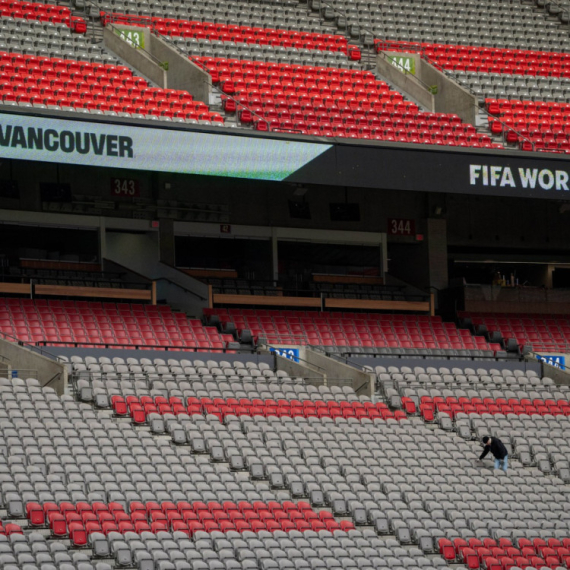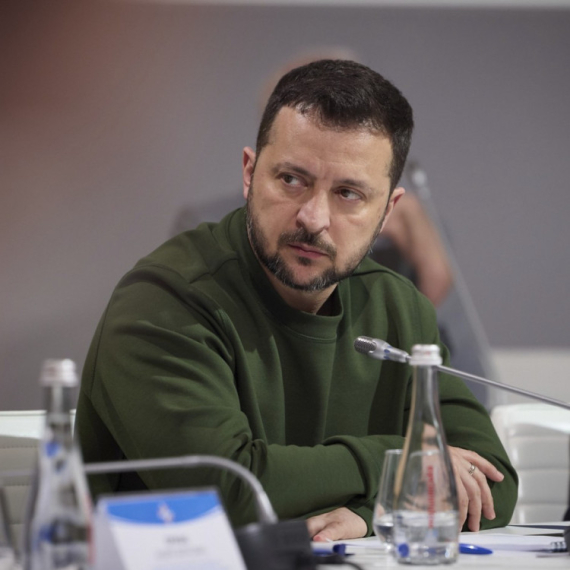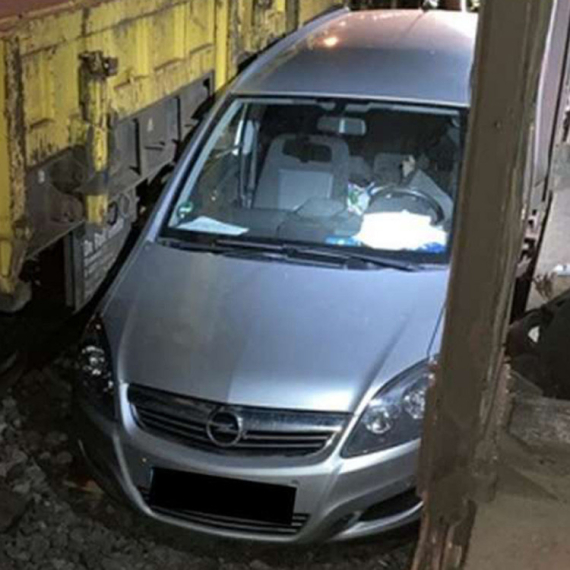Belgian coalition broker resigns
The mediator entrusted with ending the crisis that has left Belgium without a government for nearly seven months has tendered his resignation.
Friday, 07.01.2011.
13:27

The mediator entrusted with ending the crisis that has left Belgium without a government for nearly seven months has tendered his resignation. Johan Vande Lanotte, appointed by King Albert II, said he could make no further headway a day after two out of seven parties rejected his plan. Belgian coalition broker resigns "You can lead a horse to water but you can't make it drink," he said. The king has yet to accept his resignation and is due to see him again on Monday. A caretaker government has been running Belgium since the election. Belgium has been under pressure to reach a deal because sovereign debt is close to 100% of gross domestic product. The plan proposed by Mr Vande Lanotte would see a further decentralisation of power to Belgium's regions, split between the Dutch-speaking Flemish population and French-speaking Walloons. The Flemish population has been seeking more control over tax policy while Walloons want greater protection and more money for the region around the capital, Brussels. The Flemish Christian Democrats said earlier that essential items of the plan would have to be adjusted. The New Flemish Alliance, which made the break-up of Belgium a central manifesto pledge at the election, said it had "fundamental remarks" to make about the proposal before continuing negotiations. But the leader of a third Flemish party accused both parties of seeking "Utopia". "I think the parties who don't see the note [plan] as a basis for negotiations will have to run for election in a country called Utopia next time," Bruno Tuybens of the Flemish Social Democrats said on Flemish TV. "Those who pull the plug now will have to take the responsibility." Mr Vande Lanotte, who is also a Flemish Social Democrat, said the parties would have to agree eventually. "One day the politicians will have to take that step in the interests of the prosperity of our country," he told reporters. While Belgian media were already speculating about a new choice of mediator, some analysts argued that fresh elections were a distinct possibility. "If nothing else is possible, you have to vote in a democracy," Professor Carl Devos at Ghent University told Reuters news agency. "It is not a structural solution to the problem but sometimes things improve afterwards."
Belgian coalition broker resigns
"You can lead a horse to water but you can't make it drink," he said.The king has yet to accept his resignation and is due to see him again on Monday.
A caretaker government has been running Belgium since the election.
Belgium has been under pressure to reach a deal because sovereign debt is close to 100% of gross domestic product.
The plan proposed by Mr Vande Lanotte would see a further decentralisation of power to Belgium's regions, split between the Dutch-speaking Flemish population and French-speaking Walloons.
The Flemish population has been seeking more control over tax policy while Walloons want greater protection and more money for the region around the capital, Brussels.
The Flemish Christian Democrats said earlier that essential items of the plan would have to be adjusted.
The New Flemish Alliance, which made the break-up of Belgium a central manifesto pledge at the election, said it had "fundamental remarks" to make about the proposal before continuing negotiations.
But the leader of a third Flemish party accused both parties of seeking "Utopia".
"I think the parties who don't see the note [plan] as a basis for negotiations will have to run for election in a country called Utopia next time," Bruno Tuybens of the Flemish Social Democrats said on Flemish TV.
"Those who pull the plug now will have to take the responsibility."
Mr Vande Lanotte, who is also a Flemish Social Democrat, said the parties would have to agree eventually.
"One day the politicians will have to take that step in the interests of the prosperity of our country," he told reporters.
While Belgian media were already speculating about a new choice of mediator, some analysts argued that fresh elections were a distinct possibility.
"If nothing else is possible, you have to vote in a democracy," Professor Carl Devos at Ghent University told Reuters news agency.
"It is not a structural solution to the problem but sometimes things improve afterwards."

























































Komentari 1
Pogledaj komentare